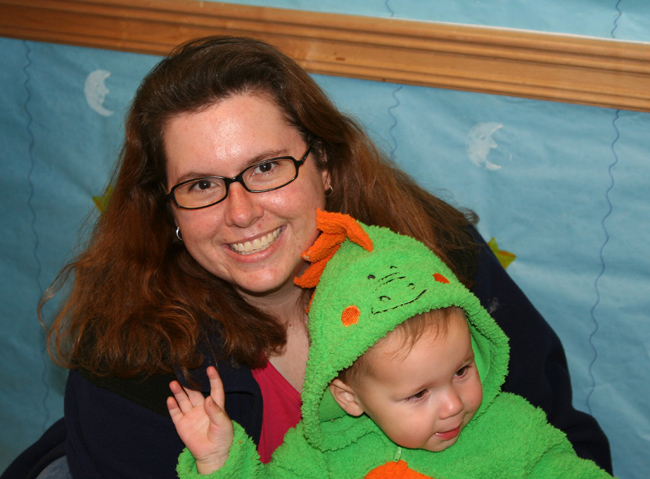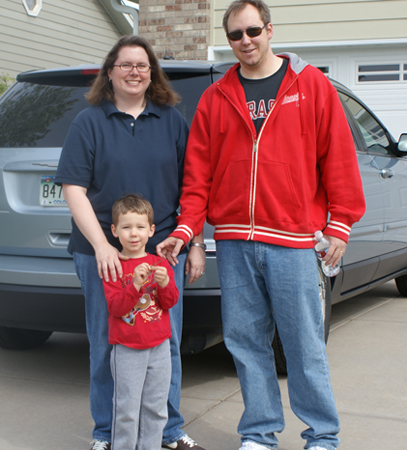
I had no idea how serious the diagnosis of bipolar disorder was at 19-years-old. To have a bottle of lithium in my hands felt scary. But it explained why I'd had such serious issues for years -- impulsivity, depression, suicidal ideation, substance abuse, grandiosity, extreme agitation, and periods of obsessive activity without sleep.
Fighting the diagnosis and hoping for a normal life didn't work out. Instead, I couldn't stay in college because I didn't care, either because I wanted to die or because I felt too brilliant to need a degree. If I wasn't obsessed with how to kill myself, I was writing page after page of my master plan to change the world. There was rarely any balance between mood swings.
Living with bipolar disorder was too difficult, too overwhelming, and when I was committed to the mental hospital at 21 because I couldn't stop thinking about death or smoking crack, I thought my life was over. It was the end. In a state hospital, surrounded by the grim reality of severe mental illness, things didn't look promising.
Euphoric mania was elusive, but I kept trying to induce it. Surely if I could just stay manic I'd have the confidence to pull myself together and accomplish something. Instead it seemed like I couldn't stay out of the hospital. I couldn't stop using drugs, and I wasn't trying because the sober life was too depressing to bear. Within three years of my initial diagnosis I'd seen 10 different psychiatrists and taken at least two dozen different psychiatric medications. Social Security Disability was the logical step, and no one doubted its validity when I got my first check.
Eight years of my life seemed to slide right by in a blur of despair with only moments of promise or hope. What was there to believe in, or hope for, with my constant failures? There were people in my life who kept me hanging on, especially my mom and grandmother, who never gave up hope that I could be well.
Throwing in the towel at 26-years-old, I chose homelessness and crack, and assumed that death, or maybe prison, was imminent. I lived recklessly and dangerously. And slowly it occurred to me that what happened with my life was in my hands. If I was going to have a real life, without drugs or mood swings or hopelessness, it was up to me. Living next to downtown Las Vegas in some of the most wretched places I'd ever experienced, with a much older homeless man, I realized I no longer wanted this life. It was old. My parents were about to move to Los Angeles, and I would move with them and change everything. The day we left Las Vegas was the last day I ever smoked crack.
It wasn't easy to change my life, and it didn't happen overnight. At first it was a series of good decisions, which I hadn't been making consistently at any point in my life. I wouldn't smoke crack anymore, I'd get a job, eventually go back to school, and make some good friends. I bought an outfit to do a job interview in and got myself out to some interviews. I got a job almost immediately in Burbank, and I stuck with it. I'd been clean from crack for a few weeks, and I just kept telling myself I could do this, that I knew how. I'd been in therapy forever, in many rehabs and hospitals, and I knew the basic steps for success. I needed to stay on my medications, find a therapist, not get caught up with drugs, and establish a routine to help me stabilize.
I met my husband at work. Even though I was struggling to keep my job, not drink too much, and not curse out co-workers when they irritated me, he asked me out. I had no idea what he saw in me because my self-esteem was in the basement. I felt less than human at times. Even after I told him my story, upfront, he still wanted to be with me. That was eleven years ago next month, and the other day was our eight-year wedding anniversary. He's my rock--the perfect balance to my craziness. He is responsible, intelligent, caring, and generally amazing. He helped me change my whole life.
Working is very difficult, and despite solid attempts, I'm still on Social Security. But I've completed my bachelor's and master's degrees, and now I'm working on my doctorate. I will write, teach, and conduct research, because that's what I am meant to do. My calling is to help people see that there is hope with bipolar disorder. Life doesn't end with a diagnosis. My life is what I make it.
I will always struggle with my moods. Even on medication, I deal with the symptoms of bipolar disorder, and it's never going to go away. I have worked with an amazing therapist for five years, and he has helped me grow in ways I never imagined possible. The idea of taking bipolar medication until the day I die doesn't bother me anymore. It's okay. As a social worker here in the Denver area, I'm fortunate to know an abundance of people who went to graduate school with me, as well as people I worked with in child welfare, and I meet up with them whenever possible to talk, laugh, and vent. It's my support system of amazing people--including my husband, family and friends, near and far--who help me keep moving forward, always striving for increased wellness.
And it's working. Those of us with mental illness can never give up hope, because no matter how bleak things may seem at times, not one of us is beyond repair.


Christiane Wells, MSW, is the author of Magical Shrinking: Stumbling Through Bipolar Disorder and No Guarantees: A Young Woman's Struggle to Overcome Drug and Alcohol Addiction. She lives in Highlands Ranch, Colorado, with her husband and son. Read her blog on Red Room.